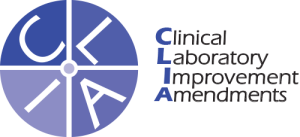Legal Grandparentage Test
About the Legal Grandparentage Test
What is a Legal DNA Test?
A legal DNA test is a type of DNA test used to establish biological relationships for legal proceedings. A key requirement of these tests is that DNA samples must be collected by an impartial third party following a strict chain of custody protocol. This means the DNA samples are collected, documented, and transported in a way that ensures they remain untouched and unaltered until they reach the testing laboratory.
The results from legal DNA tests are frequently employed in legal proceedings such as child custody and support cases, inheritance disputes, immigration matters, and any other instances where there's a need to establish a biological relationship between individuals.
Our Benefits
Fast Turnaround
Court Recognized
2x Testing Guarantee
Highest Resolution
Private & Confidential
Painless Mouth Swabs
How Legal Testing Works

Order Legal Test

DNA Sample Collection

Court-Admissible Results
Legal Grandparentage Test: 2025 Fee Schedule
| Test Type | Legal Test Kit |
|---|---|
| 1 grandchild, 1 grandmother, 1 grandfather | $695 Order » |
| 1 grandchild, 1 grandfather | $495 Order » |
| 1 grandchild, 1 grandmother, 1 grandfather, 1 mother | $895 Order » |
| 1 grandchild, 1 grandmother, 1 mother | $695 Order » |
| 1 grandchild, 1 grandmother | $495 Order » |
| 1 grandchild, 1 grandfather, 1 mother | $695 Order » |
| 2 grandchildren, 1 grandmother, 1 grandfather | $895 Order » |
| 2 grandchildren, 1 grandfather | $695 Order » |
| 2 grandchildren, 1 grandmother, 1 grandfather, 1 mother | $1095 Order » |
| 2 grandchildren, 1 grandmother, 1 mother | $895 Order » |
| 2 grandchildren, 1 grandmother | $695 Order » |
| 2 grandchildren, 1 grandfather, 1 mother | $895 Order » |
| 3 grandchildren, 1 grandmother | $895 Order » |
For legal testing, a specimen collection and witnessing fee of $65 will apply for each person whose sample is collected at one of our locations in Canada, and $100 for each individual whose sample is collected overseas. A $25 charge will apply if individuals in the same case are collected at different locations.
3 Easy Ways to Order Your Legal Grandparentage Test
Our Accreditations





Frequently Asked Questions
How does the Legal Grandparentage Test work?
The process of a DNA grandparentage test begins with the collection of samples from the grandparent(s) and grandchild through a buccal swab (mouth swab). This procedure gathers cells containing unique genetic information, or DNA (deoxyribonucleic acid). This DNA represents a “genetic blueprint” that is as unique to an individual as their fingerprint.
Once the samples are collected, they are sent to the laboratory for processing. Here, DNA is extracted from the cells, and specific regions of the DNA are amplified using a technique called PCR (polymerase chain reaction). This method allows for careful examination and comparison of the grandparent’s and grandchild’s DNA patterns.
The next step is the statistical analysis, which calculates a “grandparentage index”. This index is based on the typical DNA matches found in true biological grandparent-grandchild pairs.
The grandparentage index, a statistical measure of how closely the grandchild’s DNA matches the grandparent’s, is used to ascertain the likelihood of a biological relationship. An index value greater than 1.0 typically indicates a biological grandparent-grandchild relationship, whereas an index value less than 1.0 suggests that they are likely not biologically related. The greater the index value above 1.0, the higher the likelihood of a biological relationship, and the lower the value below 1.0, the lower the likelihood.
What is the difference between a home DNA test and a legal DNA test?
The main difference lies in how the DNA sample is collected. For a legal DNA test, the sample collection process must be witnessed by an impartial third party following a strict chain of custody protocol, ensuring that the results are admissible in court. Home DNA tests don't require this, as they are often used for personal knowledge and not intended for legal proceedings. There is no difference in the accuracy between our home DNA tests and legal DNA tests.
How quickly can I expect my Legal Grandparentage Test results?
We understand the urgency often associated with legal DNA testing. Once the samples are received by our lab, you can expect results within 1-2 business days.
How are the DNA samples collected for the Legal Grandparentage Test?
To ensure DNA results are admissible in Canadian legal proceedings, the DNA samples must be collected and witnessed following a strict "chain-of-custody" protocol. We offer two convenient options to accommodate your needs:
Self-Arranged Collection: Our home legal option offers the flexibility of arranging your own independent professional, such as a physician, nurse, or notary, for sample collection and witnessing services. This individual must act impartially and cannot be related to you or have any personal or financial interest in the test's outcome.
Laboratory-Arranged Collection: With this option, our experienced laboratory staff will handle everything. They will directly communicate with all test participants to arrange appointments at a time that works for everyone. Our extensive network of sample collection locations spans across North America, ensuring there's always a suitable and convenient location within easy reach.
How does this test work if the participants live in different cities or provinces?
With our extensive network of collection centers across Canada, we can accommodate DNA sample collection from different locations. Please note, a $25 charge will apply if individuals in the same case are collected at different locations.
How does Genetrack ensure the correct person is being tested?
Legal DNA relationship atests employ strict identification and witnessing protocols to ensure the correct individuals are being tested. During DNA sample collection, each participant is obliged to present two forms of identification. One of these must be a photo ID, and they must also provide a recent photograph. In addition, fingerprints are taken as an additional measure of identification. An impartial third-party specimen collector, who has no connection to the case or the individuals involved, oversees and documents the entire process.
Can a DNA test be performed on a baby?
Yes, a DNA test can be safely performed on a baby. The DNA sample is collected via a non-invasive cheek swab, which is painless and safe for individuals of all ages.
Does the mother need to be tested?
In a paternity test, it is not required to test the mother in order to obtain a conclusive legal DNA test result. The test can be absolutely conclusive even with just the alleged father and child's samples. However, including the mother's DNA can help strengthen the results, but it is entirely optional
For other relationship tests like sibling or grandparentage tests, the inclusion of the mother's DNA may help in obtaining more precise results.
How do I order the Legal Grandparentage Test?
DNA paternity testing can be arranged online, by phone or by fax. Questions can be directed to the laboratory by email at info@genetrackcanada.com or by phone at 1-855-284-6553. Our DNA advisors will be able to answer any questions you may have or to help you to schedule an appointment for testing.

